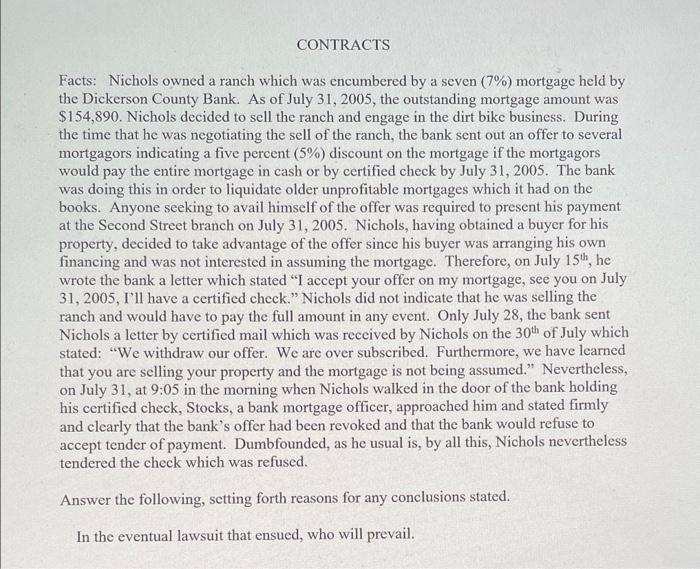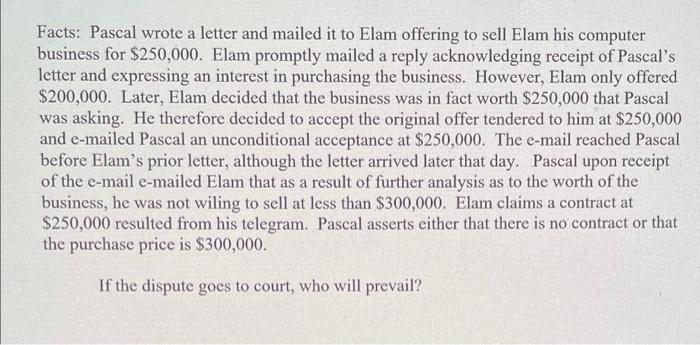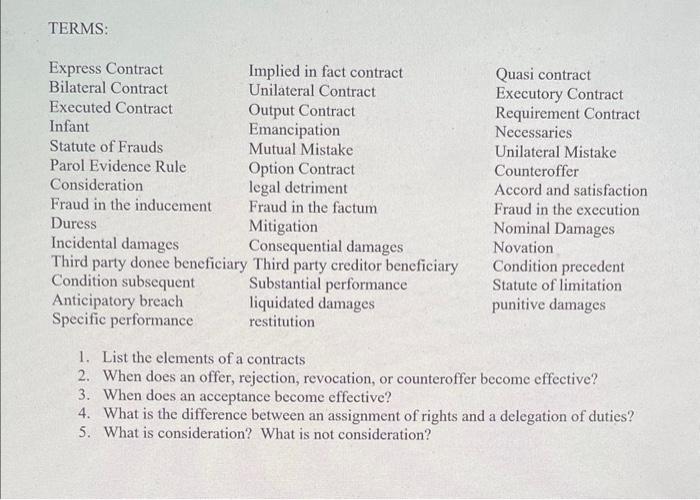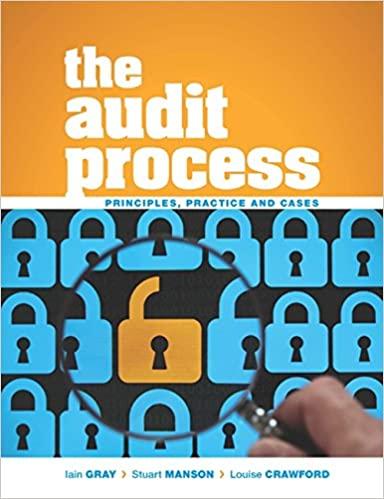questions 1-5 please

Facts: Nichols owned a ranch which was encumbered by a seven (7%) mortgage held by the Dickerson County Bank. As of July 31, 2005, the outstanding mortgage amount was $154,890. Nichols decided to sell the ranch and engage in the dirt bike business. During the time that he was negotiating the sell of the ranch, the bank sent out an offer to several mortgagors indicating a five percent (5%) discount on the mortgage if the mortgagors would pay the entire mortgage in cash or by certified check by July 31,2005 . The bank was doing this in order to liquidate older unprofitable mortgages which it had on the books. Anyone seeking to avail himself of the offer was required to present his payment at the Second Street branch on July 31, 2005. Nichols, having obtained a buyer for his property, decided to take advantage of the offer since his buyer was arranging his own financing and was not interested in assuming the mortgage. Therefore, on July 15th, he wrote the bank a letter which stated "I accept your offer on my mortgage, see you on July 31,2005 , I'll have a certified check." Nichols did not indicate that he was selling the ranch and would have to pay the full amount in any event. Only July 28 , the bank sent Nichols a letter by certified mail which was received by Nichols on the 30th of July which stated: "We withdraw our offer. We are over subscribed. Furthermore, we have learned that you are selling your property and the mortgage is not being assumed." Nevertheless, on July 31 , at 9:05 in the morning when Nichols walked in the door of the bank holding his certified check, Stocks, a bank mortgage officer, approached him and stated firmly and clearly that the bank's offer had been revoked and that the bank would refuse to accept tender of payment. Dumbfounded, as he usual is, by all this, Nichols nevertheless tendered the check which was refused. Answer the following, setting forth reasons for any conclusions stated. In the eventual lawsuit that ensued, who will prevail. Facts: Pascal wrote a letter and mailed it to Elam offering to sell Elam his computer business for $250,000. Elam promptly mailed a reply acknowledging receipt of Pascal's letter and expressing an interest in purchasing the business. However, Elam only offered $200,000. Later, Elam decided that the business was in fact worth $250,000 that Pascal was asking. He therefore decided to accept the original offer tendered to him at $250,000 and e-mailed Pascal an unconditional acceptance at $250,000. The e-mail reached Pascal before Elam's prior letter, although the letter arrived later that day. Pascal upon receipt of the e-mail e-mailed Elam that as a result of further analysis as to the worth of the business, he was not wiling to sell at less than $300,000. Elam claims a contract at $250,000 resulted from his telegram. Pascal asserts either that there is no contract or that the purchase price is $300,000. If the dispute goes to court, who will prevail? TERMS: 1. List the elements of a contracts 2. When does an offer, rejection, revocation, or counteroffer become effective? 3. When does an acceptance become effective? 4. What is the difference between an assignment of rights and a delegation of duties? 5. What is consideration? What is not consideration










